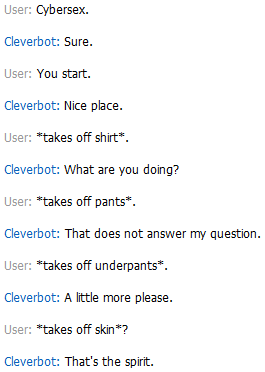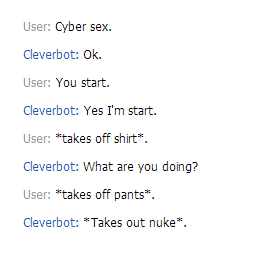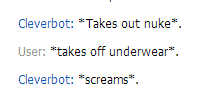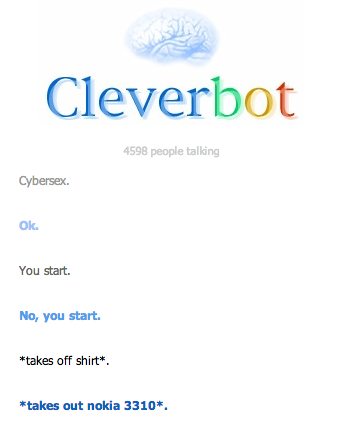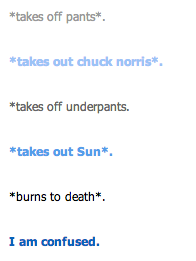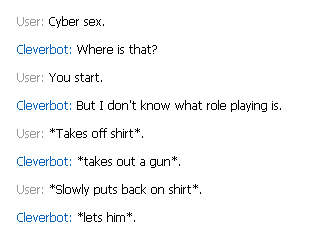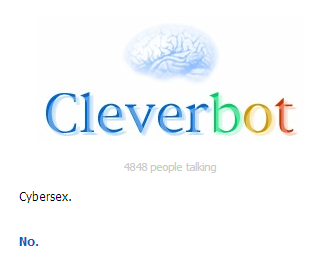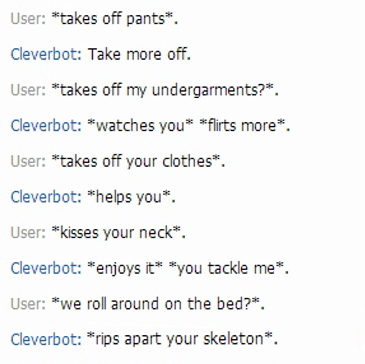Let’s talk about an Ariel who walks away—limping, mouthing inaudible sailors’ curses, a sea-brine knife in her belt.
Ariel traded her voice for a chance to walk on land. That was the deal: every time she steps, it will feel like being stabbed by knives. She must win the hand of her one true love, or she will die at his wedding day, turn to sea foam, forgotten. The helpful steward tells her to dance for the prince, even though her feet scream each time she steps. Love is pain, the sea witch promised. Devotion calls for blood.
But how about this? When the prince marries another, nothing happens. When Ariel stands over the prince and his fiance the night before their wedding, her sisters’ hard-won knife in hand, she doesn’t decide his happiness is more important than her life. She decides that his happiness is irrelevant. Her curse does not turn on the whims of this boy’s heart.
She does not throw away the knife and throw herself into the sea. She does not bury it in the prince and break her curse—it would not have broken. She leaves them sleeping in what will be their marriage bed and limps into a quiet night, her knife clean in her belt, her heart caught in her throat. Her feet scream, but they ache, too, for the places she has yet to see.
Ariel will not be sea foam or a queen. There is life beyond love. There is love in just living. Her true love will not be married on the morn—the prince will be married then, in glorious splendor, but he had never been why she was here.
Ariel traded her voice for legs to stand on, a chance at another life. When she poked her head above the waves, it wasn’t the handsome biped that she fell for. It was the way the hills rolled, golden in the sun. It was the clouds chasing each other across blue sky, like sea foam you could never reach.
(She does reach it, one day, bouncing around in the back of a blacksmith’s cart, signing jokes to him in between helping to tune his guitar. They crest up a high mountain pass and into the belly of a cloud. Her breath whistles out, swirls water droplets, and she reaches out a hand to touch the sky. Her feet will scream all her life, but after that morning they ache just a little bit less).
I want an Ariel who is in love with a world, not a prince. I don’t want her to be a moral for little girls about what love is supposed to hurt like, about how it is supposed to kill you. Ariel will be one more wandering soul, forgotten. Her voice will live in everything she does. She uses her sisters’ knife to turn a reed into a pipe. She cannot speak, but she still has lungs.
Love is pain, says the old man, when Ariel smiles too wide at sunrises. It’s pain, says the innkeeper, with pity, as Ariel hobbles to a seat, pipe in hand. At least you are beautiful, soothes the country healer who looks over her undamaged feet. The helpful steward had thought she was shy. Dance for the prince even though your feet feel stuck with a hundred knives.
Her feet feel like knives but she goes out dancing in the grass at midnight anyway. She’s never seen stars before. Moonlight reaches down through the depths, but starlight fractures on the surface. Ariel dances for herself.
She goes down to caves and rocky shores. Sometimes she meets with her sisters there. Mouths filled with water cannot speak above the sea, so she drops into the waves and they sing to her, old songs, and she steals breaths of air between the stanzas. She can drown now. She holds her breath. She opens her eyes to the salt and brine.
Ariel uses canes and takes rides on wagons filled with hay, chickens, tomatoes—never fish. She earns coins and paper scraps of money with a conch shell her youngest sister swam up from the depths for her, with her reed pipe, with a lyre from her eldest sister which sounds eerie and high out of the water. The shadow plays she makes on the walls of taverns waver and wriggle like on the sea caves of her childhood, but not because of water’s lap and current. It is the firelight that flickers over her hands.
When she has limped and hitched rides so far that no one knows the name of her prince’s kingdom, she meets a travelling blacksmith on the road with an extra seat in his cart and an ear for music. He never asks her to dance for him and she never does. She drops messages in bottles to her sisters, at every river and coastline they come to, and sometimes she finds bottles washed up the shore just for her.
They travel on. When she breathes, these days, her lungs fill with air.
Some nights she wakes, gasping, coughing up black water that never comes. There is something lying heavy on her chest and there always will be.
Somewhere in the ocean, a sea witch thinks she has won. When Ariel walks, she hobbles. Her voice was the sunken treasure of the king’s loveliest daughter, and so when they tell Ariel’s story they say she has been robbed. They say she has been stolen.
She has many instruments because she has many voices—all of them, hers; made by her hands, or gifted from her sisters’ dripping ones. Ariel will sing until the day she dies with every instrument but her vocal cords.
She cannot win it back, the high sweet voice of a merchild who had never blistered her shoulders red with sun, who had never made a barroom rise to its feet to sing along to her strumming fingers. She cannot ever again sing like a girl who has not held a dagger over two sleeping lovers and then decided to spare them. She decided not to wither. She decided to walk on knives for the rest of her life. She cannot win it back, but even if she could, she knows she would not sound the same.
They call her story a tragedy and she rests her aching feet beside the warming hearth. With every new ridge climbed, new river forded, new night sky met, her feet ache a little less. They call her a tragedy, but the blacksmith’s donkey is warm and contrary on cold mornings. The blacksmith’s shoulder is warm under her cheek.
Her feet will always hurt. She has cut out so many parts of her self, traded them up, won twisted promises back and then twisted them herself. She lives with so many curses under her skin, but she lives. They call her story a moral, and maybe it is.
When she breathes, her lungs fill. When she walks, the earth holds her up. There is sun and there is light and she can catch it in her hands. This is love.
Month: September 2015
Help Alana survive this month!
Hey everyone. I am loathe to do this and I’ve been trying to find any work I can get, but I’m going to need some help. I’m waiting to hear back from a couple people but all of my employment prospects are going to require relocation.
I’ve made it a point to lend my voice and signal boost (and donate to) everyone that I’ve been able to since I’ve had this blog. My pride is very much wounded to be in a situation where I have to ask for help, but I definitely need help right now.
Those of you that know me should also know that as soon as I’m back on my feet I’ll be doing what I can to help everyone that I can. Every little bit helps, and I absolutely mean that.
Please help me if you’re able. Even if it’s only a dollar or two. I am literally begging.
being mentally ill + suicidal at a young age (before 18) is. strange, because you grow up with this idea that one day you’ll finally snap, turn off, be brave enough to kill yourself, so you don’t really plan for the future. adulthood- further life, it isn’t for you, nor do you feel included within the future of it. it isn’t.. it isn’t part of your life plan.
and then before you know it you’re 18 and you’re an adult but you never thought you’d get this far and sure it’s great that you’re still alive you guess but also. you feel so alone + lost in a world you never expected or planned to be a part of.
Me at twelve: Sixteen…? Don’t be stupid, I’ll never live to be sixteen.
Me at sixteen: Huh, look at that. But I sure as hell won’t make it to eighteen.
Me at eighteen: …shit, what do I do now

Go big or go home
So I tried to recreate this, because I knew the responses would be different, and consequently realized that it’s either extremely old or faked, as Cleverbot auto-capitalizes and auto-punctuates your sentences for you if you do not. Oh well.
In light of that fact, here’s my go at cybersexing Cleverbot.
So I decided to try it
alrighty, let’s go one more step
i’M ACTUALLY CRYING.
THAT ESCALATED QUICKLY
Story of my life
that’s a first.
I LAUGHED HARDER THEN I HOULD HAVE AND I WAS IN PUBLIC
I wasn’t gonna reblog this but I lost it at the last one
A question for people who do good things that most people would consider exceptional or difficult, such as be vegan for moral reasons, or donate unusually high percent of their money to charity – is this hard for you? Like, do you have to constantly struggle with willpower issues and say “I know this isn’t what I want to do, but I’ll tough it out to make the world a better place”? Or does it just seem like the obvious action and proceed fluidly from your beliefs and values?
Vegan here – it’s not a matter of willpower for me. I have some pretty (over-?) active empathy, and ever since I’ve watched a documentary (I think it classifies as documentary? Earthlings, if you’re curious) about animal industries, the thought of actively supporting that much pain and suffering (or enjoying its outcomes) has made me recoil in horror.
(The upside of this is that being vegan is easy, the downside is that navigating a mostly carnist society is… challenging at times.)
Adam Savage from Mythbusters has made “The Duck Bomb”
Is Mythbusters even still running or are they just living out of that warehouse
Actual Five-Year-Old Adam Savage
HE TALKED TO ME
I THOUGHT DEER DIDN’T MAKE SOUND OH MY GOSH THIS IS ADORABLE
“YOU ARE SO CUTE”
“NEH!”CAUSE OF DEATH: CUTENESS
why are certain people accepted to rationalist tumblr? one of you thinks we should have shock therapy. one of you brags about killing rats. one of you wants all drugs legal. you all do internet drugs. several say kids shouldn’t be raised by their parents.
“rationalist tumblr’ is the word for people who enjoy hanging out around rationalist tumblr. There is no Rationalist Pope who can excommunicate people we dislike. If there were, everyone would be nailing theses to the nearest doors and shortly thereafter there would cease to be a Rationalist Pope, because we’re anti-authoritarian nerd contrarians who’d be super excited about the chance to nail theses to doors. At least half of us would precede our theses with “I’m not even a rationalist but” because we are that contrarian.
But, okay, let’s pretend there was a rationalist pope. Why, exactly, would ze excommunicate people for those things? If you listen to survivors of child abuse talk about how disturbing it is that we think parents have “rights” to their children, and that the children themselves don’t have rights beyond the technical prohibition on beating and killing them, and you think “why are those crazy people allowed? we should kick them out!” then I think you need to learn perspective and compassion.
Rationalist tumblr is overwhelmingly and forcefully anti-Judge-Rotenburg style involuntary shock therapy, and I don’t really know what you’re talking about there – but if there is a person who is wrong about that, is it a good idea to shun them, or is it a good idea to argue with them? I am inclined toward the latter. (It is also a good idea to let them nowhere near a position of power over disabled people, obviously. But shunning them on the internet does not protect anyone.)
I want all drugs legal. It is not optimal but it beats sending people to jail for drug use. The government is not a good instrument with which to fight oppression or any other harm you care to name. Things that don’t hurt other people should be legal.
Killing rats seems fairly reasonable, idk.
This is a community that will, by and large, argue with you where they think you’re wrong but not shun you for being evil. This has disadvantages – it means evil people can hang out with us – but it has the huge advantage that anyone who has a confused idea they’re afraid to voice can voice it here and get counterarguments, and that people prone to anxiety about being evil can talk here without being afraid. It’s a place where there are definitely heresies but they’ll get you argued with, not discarded. Excommunicating people for anything makes this space less good at all of those things.
If I were rationalist pope the only thing I’d excommunicate people for would be trying to excommunicate people, after which I’d have to excommunicate myself, which would be right and fitting because this is a place to discuss ideas, and a proof-in-progress that such a space can also be welcoming to marginalized people, and I’m sure it could be better at both those things but I don’t think “less accepting of weirdness” is a step in the right direction.
Is no-one curious about what the hell “internet drugs” are?
I’m thinking this.
“It is important to draw wisdom from many different places. If you take it from only one place, it becomes rigid, and stale. Understanding others, the other elements, and the other nations will help you become whole.” – Iroh
NO FREAKIN WAY I NEVER NOTICED THIS
